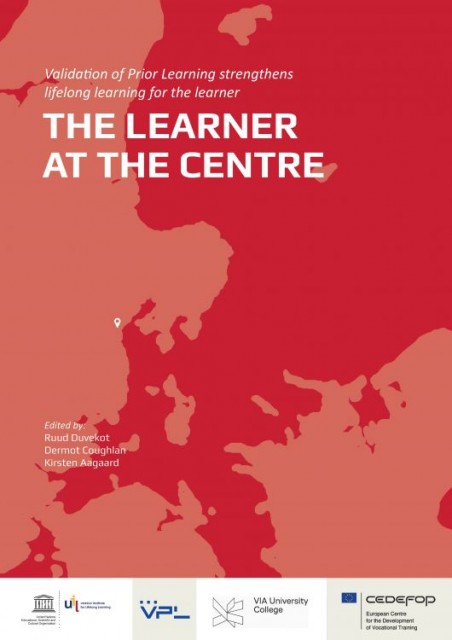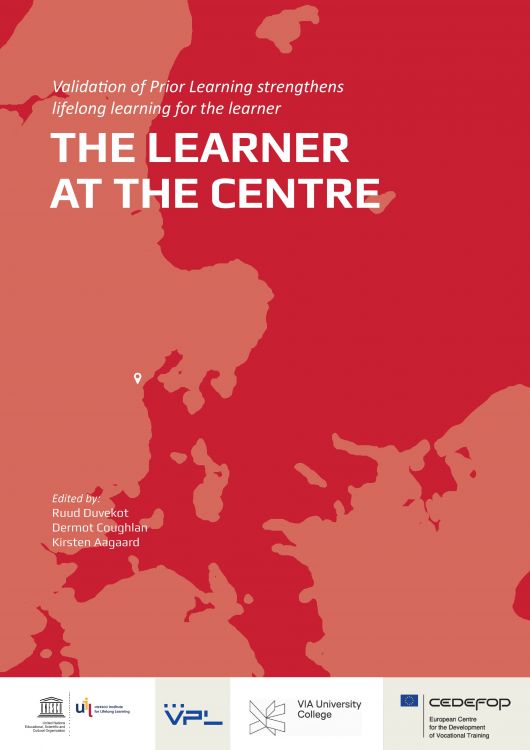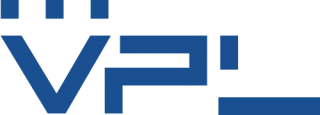Observatorio de la validación de competencias
By accepting you will be accessing a service provided by a third-party external to https://observal.es/
The learner at the centre: Validation of Prior Learning strengthens lifelong learning for all
Throughout history, people have always prepared thoroughly for strengthening and practising their skills in a profession; this has been true from the Middle Ages right through the industrial age. And this is no different in the present learning society. The prevailing systems of professional training and education do require adjustment and even innovation, because they are part of the changing socio-economic and socio-cultural landscape. Where once upon a time, simply completing a qualification was enough to gain and hold onto your place in society and in the labour market, in ever more cases this no longer holds. Nowadays, in the on-going transition to the learning society flexible, continuous and more adaptive learning is required to keep the citizen viable in today's labour market or in other words, productive citizenship. Staying on top of this development is vital for all actors: individuals, labour organizations, schools/universities, social partners and legislative and regulatory bodies are bound together closely in the social and economic structure. These ties
have always been present, but never before in history has the individual – or the citizen – got the chance to gain so much control in steering one's career through learning as is the case in 'the learning society'. It is the systematic process of Validation of Prior Learning (VPL) that offers this 'window of opportunities' with its focus on opening up learning opportunities on – metaphorically speaking - 'my' own demand. And since learning is ever more connected to social success, this focus on individualised control by means of VPL is the main feature of the changing learning
paradigm in the present context; a paradigm that is centred around individual choices and competence-based and outcomes-directed lifelong learning (Duvekot, 2006).
VPL is more and more embedded in the primary processes of learning and working. VPL will be a stimulus and 'guide' for sustainable personal development, in both processes. Moreover, it will be aiming at creating shared ownership by citizens and organisations of their competency-based development.
The mission of the 2nd VPL Biennale is to share information, knowledge, ideas and visions on the practice of VPL: the learner in the centre. The learner is understood as the volunteer, the young one, the older one, the worker, the jobseeker, the teacher/trainer, the employer, the trade unionist, etc.
The central theme of the 2nd VPL Biennale focuses on the alluring perspective of the integration of VPL in running processes and in systems of learning and working. It's time for practising VPL.
The crucial question to be answered in this respect is how to further implement VPL as an effective method in lifelong learning perspectives, being able to integrate all citizens effectively and quality-assured into lifelong learning strategies at all levels and in all environments and contexts?
This question relates to priority areas in the practice of sectors, regions, organisations and citizens, related to enhancing lifelong learning perspectives and
to fostering social and economic progress by: Integrating VPL in all learning levels and environments.
- Offering concrete and real learning opportunities to all citizens, with a special focus on underrepresented groups and non-traditional learners.
- Strengthening the levels of professionalism in VPL-functions to be able to cope with learner-driven and learning outcome-based lifelong learning. The 2nd VPL Biennale was hosted by VIA University College in Aarhus, Denmark on April 25-27, 2017. The aim was strengthening the platform for policy makers, practitioners, users, researchers and other stakeholders that are involved in further developing and implementing VPL-systematics and -processes.
The 2nd VPL Biennale focused on sharing information, knowledge, ideas and visions on VPL and about the creative process of learning from each other's successes, problems and solutions in 'the VPL-world'.
Finally, as a kind of disclaimer the reader should be aware that the English in this publication might have been formulated in UK- or American-English, depending on the origin or orientation of the author(s).
Índice del libro
- Organizing RVA at National, Regional and Local Levels by Madhu Singh
- Validation of Non-formal and Informal Learning in Europe by Ernesto Villalba and Jens Bjørnåvold
- The Dawn of a New Era for Learners by James Rickabaugh
- VPL for personalised learning: The added value of integrating the two concepts by Ruud Duvekot
- Quality in Validation of Prior Learning: Experiences in researching the practice of the Nordic Model for Quality in Validation of Prior Learning by Kirsten Aagaard, Per Andersson, Timo Halttunen, Brian Benjamin Hansen and Ulla Nistrup
- Lifelong Learning at the Centre Recognition of Prior Learning in South Africa by Heidi Bolton, Joe Samuels, Takatso Mofokeng, Omotola Akindolani and Yvonne Shapiro
- Validation as a Learning Process by Per Andersson
- The Spanish Experience: Validating informal and non-formal learning outcomes with a focus on labour market perspectives by Yazid Isli
- Overcoming Language Barriers: Competence Cards help reveal migrants' skills by Martin Noack and Kathrin Ehmann
- Guidance in Validation in the Nordic Region: Challenges and recommendations by Arnheiður Gígja Guðmundsdóttir and Fjóla María Lárusdóttir
- Validation of Workplace Learning: Examples and considerations in the context of national development in VPL by Deirdre Goggin and Irene Sheridan
- Exploratory Analysis for a National Qualifications Framework proposal in Venezuela by Anna Gabriela Pérez and Francklin Rivas Echeverría
- Learning from Volunteering: Recognition and validation of volunteer experiences by Guus Bremer and Jo Peeters
- The Concept of Competence and the Challenge of Competence Assessment by Henning Salling Olesen
- Integrating Non-formal and Informal Learning in Honduras: The educational model of the Universidad Nacional Autonoma de Honduras by Céleo Emilio Arias Moncada
- How can Effectiveness of VPL Foster Individuals' Benefit? by Bodil Lomholt Husted
- Spanish VET Centres and Validation of Competences: The role of Spanish VET centres as open educational resources by Manuel Carabias and Luis Carro
- Work and Study: Conceptualizing validation of work experience in a Finnish University of Applied Sciences by Marjaana Mäkelä and Anu Moisio
- Building a RPL Practioner Network: Reflections and considerations from the Irish perspective by Deirdre Goggin and Josephine Finn
- Focus on the Student: Recognition of Prior Learning from student's subjective perspectives by Jeanette Leth
Referencia
Duvekot, R., Coughlan, D. & Aagaard, K. (eds.) (2014). The learner at the centre: Validation of Prior Learning strengthens lifelong learning for all Rotterdam: Inholland University AS & European Centre Valuation Prior Learning,


